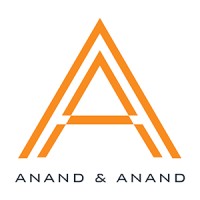Archana Shanker considers the implications of the grant of a compulsory licence for the very first time in the Indian patent system.
The licence was granted to Natco Pharma, a generic drug company, for sorafenib tosylate, a life-extending drug developed, patented and launched by Bayer Corporation. This drug is sold under the trade name of Nexavar and is used for the treatment of advanced-stage kidney and liver cancer.
The Controller General of Patents has set a benchmark in this landmark decision by invoking Section 84(1), a crucial provision of the Indian Patents Act which allows any person interested to file an application for grant of compulsory licence on a patent at any time from three years after grant on various grounds mentioned in the Indian Patents Act.
This article was published in Life Sciences Intellectual Property Review 2012.
To continue reading, please contact us at email@anandandanand.com
 etc. whilst wrongfully claiming to be part of our firm and making false claims and allegations.
etc. whilst wrongfully claiming to be part of our firm and making false claims and allegations.